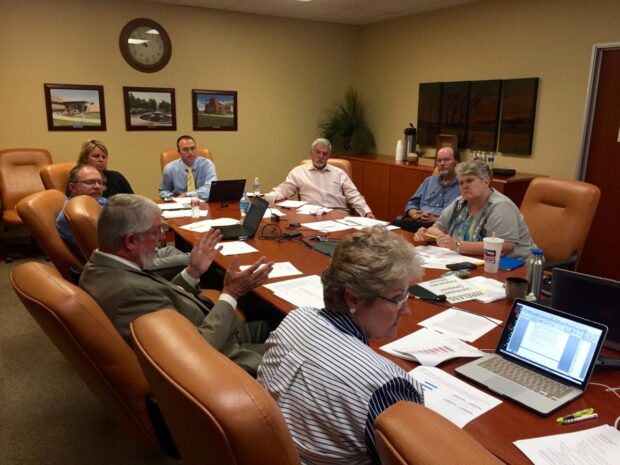More questions than answers materialized Wednesday night during the state’s first public forum on a new school accountability system.

Wednesday’s meeting at the Boise Independent School District office was the first in a series of seven public forums on accountability.
Idaho has been without an accountability system since repealing its controversial five-star rating system in 2014.
But the new Every Student Succeeds Act requires states to adopt accountability systems that align to the federal education law by the 2017-18 school year.
The State Board of Education gave preliminary approval to Idaho’s new accountability framework last month.
But many details have yet to be fully developed. Once completed, the system will also be used to identify the state’s lowest-performing schools. A separate but related document, the consolidated state plan, will dictate improvement plans and interventions for low-performing schools. This plan is also under development.
State officials hope to gather suggestions for finalizing their accountability system during the public hearings, which will take place throughout the state this month and next.
Sixteen people attended Wednesday’s hearing, including Sen. Lori Den Hartog, R-Meridian, members of Boise’s school board and a handful of educators and parents.
Nobody offered official testimony. But most attendees were curious about how the accountability system would work.
They asked several questions about federal reporting requirements, testing requirements, data privacy and several other hot topics in education.
But it wasn’t until the meeting died down and the room cleared out that ideas for fleshing out the accountability system came forward.
Carmi Scheller, a 27-year veteran educator who teachers fourth grade in Star, suggested two ways state officials could move beyond high-stakes test results as an indicator of academic quality.
She said tracking student growth between pre- and post-test results has been a very strong indicator in her classroom.
“When I look at that data, I know where growth has occurred in that unit,” she said.
Scheller also suggested class-size data could be presented in the accountability system’s “data dashboard” — an online portal to present multiple sets of school and teacher quality data.
State Board officials Blake Youde and Tracie Bent said Scheller’s suggestions were productive and valuable.
Bent and Youde presented an overview of the accountability model during the first hour of Wednesday’s hearing.
At one point, Youde told the audience they were specifically hoping to capture suggestions from teachers.
Anyone wishing to make suggestions won’t have to wait long to do so. The next forum runs from 6 to 8 p.m. Thursday at Ridgevue High School, 11880 Madison Road, Nampa.
“When you think about what the characteristics of a good school are and how you would measure that, that is the sort of nuts-and-bolts (feedback) on school quality that we are looking for,” Youde said.
Bent said public feedback will be a valuable tool in shaping the accountability system that will govern schools.
“A lot of research says student engagement is a critical measure that really impacts student success, but there is not a lot of research that says ‘here is how you measure student engagement,’” Bent said. “That’s what we are looking for.”
